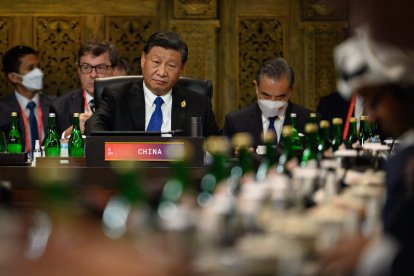China eases COVID restrictions after surge of protests
After the Chinese Communist Party walked back its zero-COVID policy, experts warn of mass contagion and a possible epidemiological crisis.

(Cordon Press)
China is experiencing uncertainty after perhaps the largest wave of major protests since Xi Jinping came to power, all regarding the Chinese Communist Party's zero-COVID policy. Just weeks before the three-year anniversary of the start of the pandemic, the authorities have finally begun to give in. However, some indicators, notably low vaccination rates for the older population, began to spread fears of a healthcare system collapse.
The protests in the country's major cities, including Shanghai and Beijing, are considered the largest since Tiananmen Square in 1989. After more than two and a half years of strict COVID regulations, a large portion of society rose up to demand their liberties. In the face of the massive protests, CCP walked back many of the most suffocating measures last week that affected most of the country.
However, many were reluctant to protest, as official information regarding a new wave of COVID-19 sowed uncertainty and fear. Feng Zijan, health policy advisor and former director of the Chinese Center for Disease Control and Prevention, said at a conference at Tsinghua University that the resulting wave could affect about 60% of the population and that about 90% of Chinese citizens would end up infected.
While most countries in the world have experienced massive waves of infection, the problem in China is that a significant percentage of its older population has not been vaccinated or has not received a booster dose. In many cases, the reason is that a significant percentage of people prioritize traditional or alternative medicine.
Economic troubles
Another reason the CCP has retracted restrictions is the slowing of economic growth. With the restrictions that have been in place for more than two and a half years, China's GDP growth projections have been affected.
The International Monetary Fund's (IMF) World Economic Outlook report estimated the country's growth at 3.2% and 4.4% for 2022 and 2023, respectively. Although China is indeed still growing, these numbers are a far cry from the 7% rate it averaged for much of the last decade.
"We are very likely to downgrade our growth forecasts for China for both 2022 and 2023," said Kristalina Georgieva, head of the IMF, "the restrictions linked to COVID put a brake on growth."
RECOMMENDATION





















